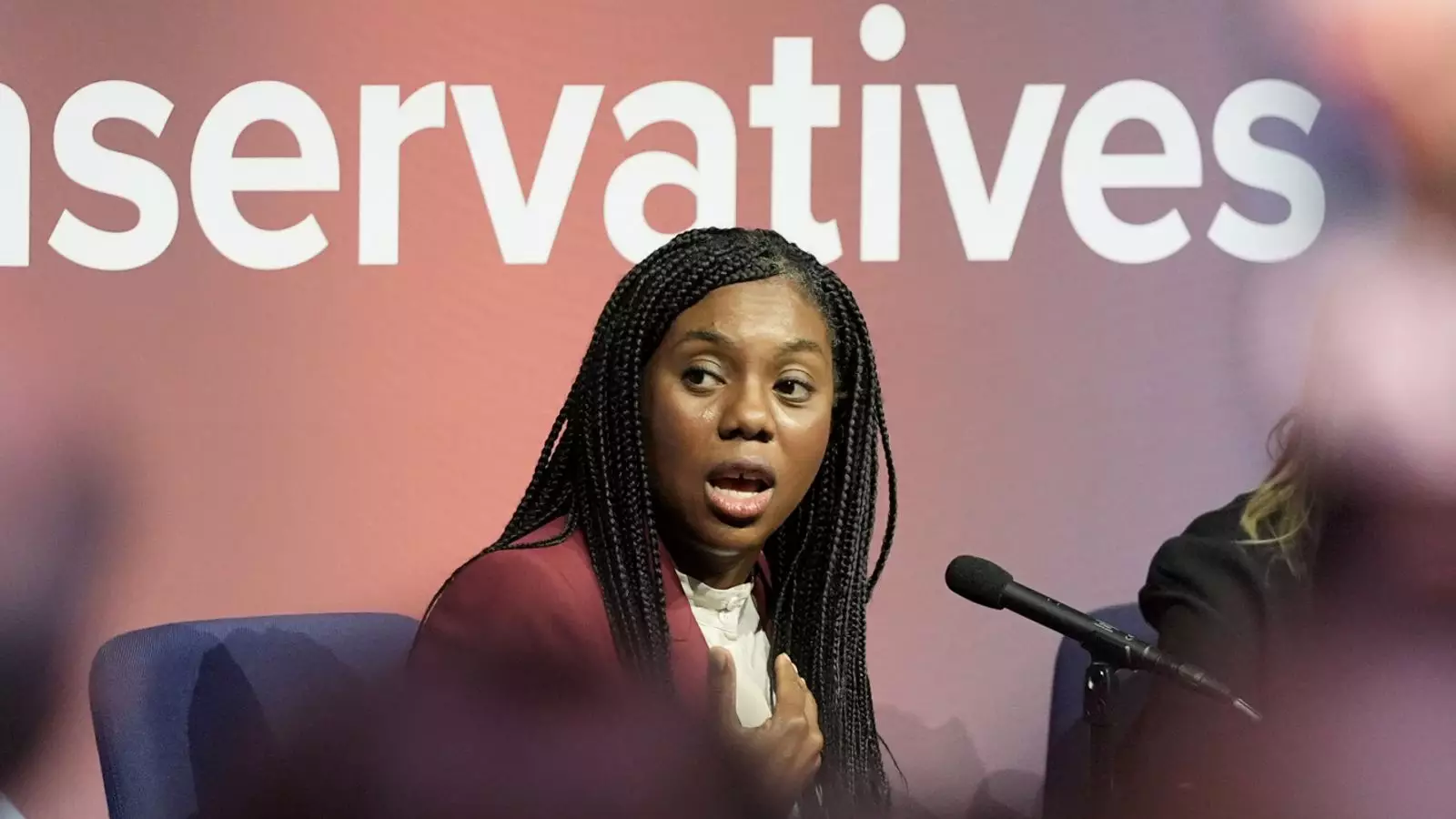Kemi Badenoch, a prominent figure in the current Conservative leadership race, has found herself at the center of a contentious debate regarding civil servants and their perceived shortcomings. Her recent comments, where she asserted that 5-10% of civil servants are “very bad” and should be imprisoned for leaking sensitive information, have stirred significant controversy. This incident raises critical questions about the intersection of politics, public service, and the narratives that shape political campaigns.
Badenoch’s remarks were made during a fringe event at a party conference, where she characterized a portion of civil servants as detrimental to the effectiveness of governmental operations. Referencing experiences from her own tenure in office, she emphasized the negative impact of a seemingly small but damaging group that allegedly engages in unethical practices, such as leaking confidential information. Yet, in an era where accountability is paramount, the absence of substantiation for these serious allegations invites skepticism and concern. Dave Penman, general secretary of the FDA union, adamantly challenged Badenoch’s claims, emphasizing the necessity for concrete evidence to support such grave accusations. His pointed statement that if actionable proof existed, it would have already resulted in formal repercussions, highlights a broader issue in political rhetoric: the potential for reputation-damaging allegations to circulate without necessary accountability.
Badenoch’s framing of civil servants contributes to an ongoing trend of populist rhetoric within politics, which often simplifies complex issues into digestible narratives that resonate with specific voter bases. By categorizing civil servants into “magnificent” and “very bad” segments, she effectively paints a dichotomous picture that could mobilize support among constituents who perceive governmental bureaucracy as bloated and ineffective. This rhetoric reflects a growing culture war within political arenas where figures seek to draw sharp lines between ‘us’ versus ‘them’, thereby solidifying their appeal among the base while alienating broader swathes of the electorate. Nevertheless, such tactics can be double-edged swords; while they may energize certain factions within the party, they risk alienating centrist voters and those who value civil service integrity.
Disparaging remarks about civil servants not only tarnish the public perception of the professionals who serve within the government but may also foster a culture of fear and distrust among these crucial public servants. When politicians like Badenoch make high-stakes claims, it contributes to an environment where civil servants may feel cornered, impacting their morale and ability to perform their duties effectively. The assertion that a significant number of bureaucrats are working against the interests of the government creates an unwarranted atmosphere of suspicion, ultimately undermining the collaborative spirit needed for efficient governance.
Despite her rising profile and popularity within the Conservative party, Badenoch’s approach to addressing civil service issues raises questions about her long-term viability as a leader. The public’s appetite for “straight talk” may wear thin if it consistently devolves into dismissive and accusatory language lacking in collaborative solutions. This incident serves as a reminder that a leader’s strength derives not only from bold statements but also from an ability to engage constructively and ethically with all stakeholders, including civil servants. As Badenoch vies for leadership against candidates such as Robert Jenrick and James Cleverly, her approach will inevitably influence her standing. Voter sentiment is often unpredictable and, as suggested by polling data, the path to leadership remains wide open for her competitors.
Kemi Badenoch’s recent inflammatory remarks encapsulate the tensions inherent in contemporary political discourse, where decisive language is celebrated yet carries the weight of responsibility. As the political landscape continues to evolve, leaders must navigate the delicate balance between candidness and accountability. The backlash against Badenoch’s claims is not merely a reaction to her statements but a broader call for a return to nuance in political interaction—a necessity for rebuilding trust in institutions that serve the public interest. Ultimately, how politicians choose to engage with civil servants can shape not just their personal political futures but the very fabric of governance in a democratic society.


Leave a Reply